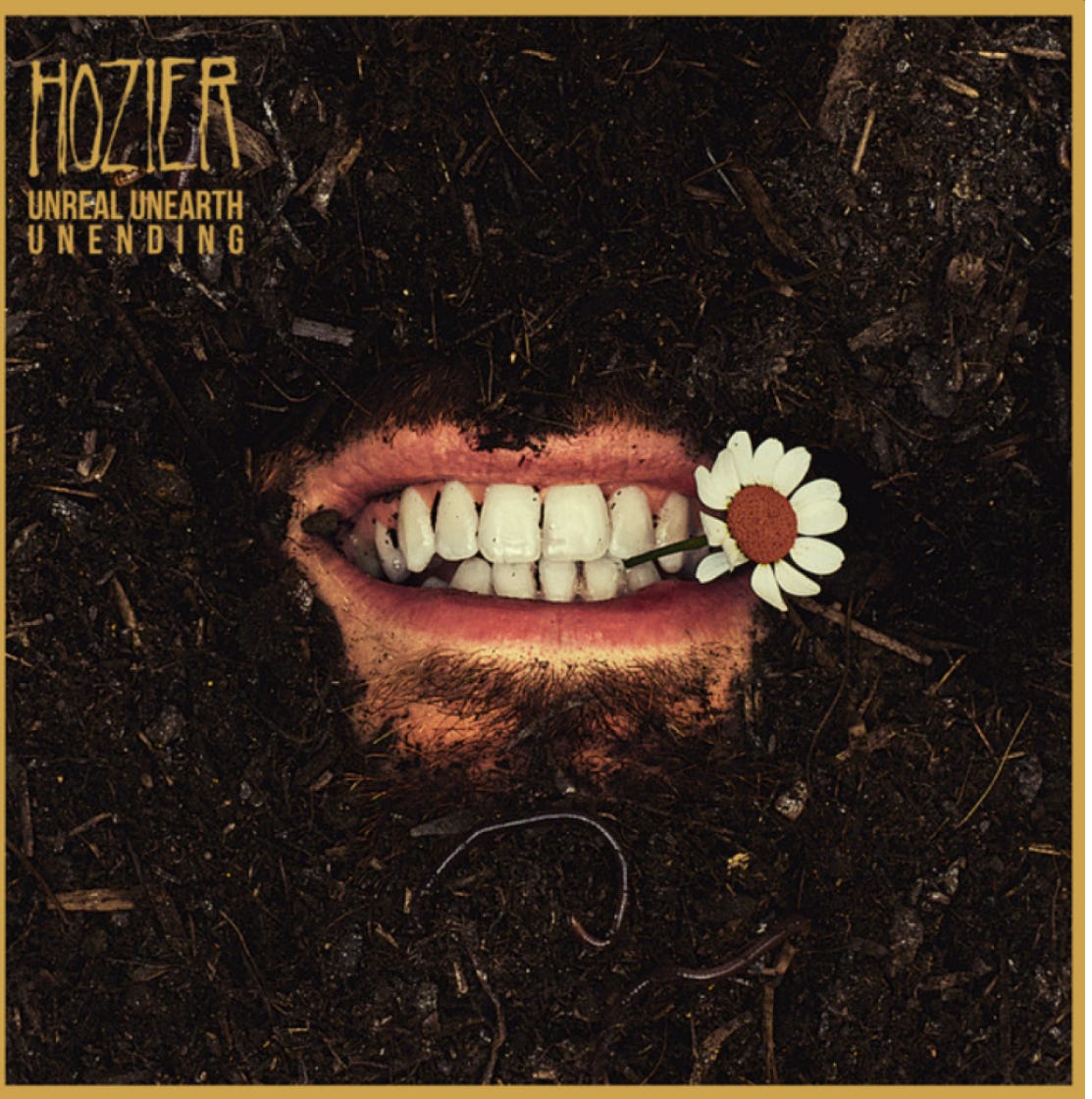The Momentum of Sound
By Emmanuel Echoga | An exploration of how music taught me to slow down, feel deeply, and finally move to the rhythm of my own frequency.
Written by Emmanuel Ehi Echoga | Seeking Veritas Columnist | | Sankarsingh-Gonsalves Productions

Listening Without Knowing
In high school, I listened to music like someone blind to momentum. Songs floated past me like smoke in a hallway; present, pleasant, but untouchable. I heard the beat. I sang along. I let it fill the silence. But I didn’t feel it yet. Not in the way that music eventually demands to be felt.
Back then, music was social currency. You listened to what was trending—what made people move, what made people like you. Chris Brown’s “Forever”, Usher’s “There Goes My Baby”, or Wizkid’s “Don’t Dull” these songs lived in our playlists not because they mirrored our insides, but because they belonged to the moment. They were the sound of group chats and weekend playlists, of daydreams during math class and smiles you didn’t have the words to explain yet.
I loved those songs. I still do. But I wasn’t in conversation with them. They were like hummingbirds in the background—always buzzing, always beautiful, but never really landing.
I didn’t know it at the time, but I was listening without listening. Moving without momentum. Soundtracking a version of myself I hadn’t yet met.
The Implosion in the Suit
(A future story I’ll one day tell in full)
Even in those early days of music, when the beat hit but my heart stayed silent, something deeper was already brewing. I just didn’t have the words—or the rhythm—for it yet.
I’ve been thinking a lot about this image: the implosion of the suit.
The idea that you can be dressed well, moving through life, saying the right things, maybe even dancing—but inside, there’s a quiet storm. A pressure mounting beneath the seams. Raging emotions, buried griefs, invisible screams. All wrapped up in something neat, something palatable. Something presentable.
That was me for a long time. And that version of me loved music too—but he loved it like a mirror he was too afraid to look into for too long.
It wasn’t performative. It was survival. You move with momentum, yes—but not your own. You borrow it. From friends. From songs. From whatever gets you through.
And all the while, the suit holds. Until it doesn’t.
I’ll return to this later, maybe in an essay titled The Implosion of the Suit. But I bring it up now because I believe that’s when music starts to become real: not when it makes you dance, but when it threatens to undo you. And you let it.
The Threshold – Grief, Trauma & Twenty One Pilots
Everything changed when I crossed the threshold—emotionally, spiritually, sonically.
It wasn’t a dramatic shift at first. More like being cracked open by life. I came back from a traumatic moment that I’m still learning how to speak about. One of those events that rearranges you from the inside out. You walk through the world the same way, but nothing fits anymore—not your thoughts, not your emotions, not even your silence.
That’s when a close friend passed me something sacred without even knowing it: the Twenty One Pilots discography.
At first, I didn’t get it. The chaos. The tension. The shifts in tempo, the genre-bending, the restlessness. But the more I listened, the more I realized: this was what it sounded like inside me. The anxiety. The intrusive thoughts. The strange, erratic calm. And beneath it all—a hunger to survive, to make meaning out of the mess.
That was my first honest relationship with music. Because it didn’t try to soothe me. It met me where I was.
It didn’t ask me to be okay. It told me, in sound and lyric: You’re not okay—and that’s okay.
From that point on, momentum wasn’t just about movement. It was about presence. Feeling. Staying long enough inside a song to hear the part of yourself you’ve been avoiding.
That’s when I started listening for real.
The Deep Dive Era – Immersion & Romanticization
Once I started listening with intention, I couldn’t stop.
It was like discovering a hidden world that had always been around me—but now the doors were open, and I walked in fully. No longer just borrowing sound for survival—I was romanticizing the noise. Letting it flood my senses. Letting it build a new rhythm into how I processed everything: grief, memory, love, loneliness, growth.
I dove headfirst into artists who carried layers. Jon Bellion’s production became scripture—the way he stacked chaos and clarity in perfect harmony felt like my brain was finally understood. Florence + The Machine was a haunting you invited in. Rudimental’s drums made my emotions physical. Ed Sheeran’s intimacy wasn’t just about love; it was about loss. And Kings of Leon? That was soul on fire.
I started collecting music like emotions. Not playlists—experiences.
I didn’t just hear lyrics—I held them.
I’d wake up some mornings and replay a single bridge over and over again, not because it made sense, but because it made me feel seen. I was selecting songs like bandages, sometimes like mirrors, sometimes like time machines.
And I was guilty too—of over-romanticizing, over-identifying. I took what resonated, left what didn’t. I let certain songs carry too much. But isn’t that part of falling in love with art? You don’t just hear it—you assign meaning to it. And even if the artist never meant it that way, you did. And that’s valid too.
Music, at this point, had become my translator. And I was listening for survival—but also for beauty.
Coming Home – African Frequencies & Reclaiming Identity
Eventually, I started tuning back in—not outward, but inward.
After all the global sounds and genre-hopping journeys, I found myself craving something that felt like home. Something I didn’t have to explain to myself before feeling. That’s when I started diving deep into the artists who had always been near, yet whose language I hadn’t fully leaned into before.
AYLØ. Obongjayar . Boj. Show Dem Camp. Tim Lyre. Lady Donli. Eeskay
These weren’t just musicians—they were architects of my emotional landscape. Nigerian artists crafting global sounds without losing their roots. Their music felt like a return. Not a regression. Not nostalgia. A recalibration.
Because sometimes you go so far in trying to escape pain or grow beyond the familiar, you forget that your foundation has music too. That your frequency isn’t something you find “out there.” It’s something you remember.
Their sounds weren’t trying to prove anything—they just existed. Softly confident. Playfully experimental. Deeply intimate. They were asking the same questions I had been asking, just with fewer words and more rhythm.
And as I listened, I wasn’t just vibing. I was recognizing myself.
That was the new momentum: the kind that doesn’t rush, doesn’t chase—just resonates.
Understanding Your Frequency
Now, I listen differently.
I don’t chase momentum anymore—I cultivate it. I’ve returned to the chaos of millions of sounds, millions of records, but this time I come with clarity. With selection. With self.
I know what to press play on when I’m spiraling.
I know what to avoid when I need stillness.
I know what I want to feel—and what I’m not ready for.
That’s the beauty of evolving with music: the more you understand yourself, the more intentional your listening becomes. You begin to recognize your own internal frequencies in the work of others. And when something aligns? You feel it in your body. Not because it’s popular. Not because someone else said it was deep. But because it vibrates with who you are right now.
That’s how I’ve started curating my momentum—not by force, but by alignment.
Unreal Unearth, Real Emotion
(Image Credit: Hoziers Album “Unreal Unearth Unending” Cover)
Lately, I’ve found myself sitting with Hozier’s Unreal Unearth—an album that doesn’t rush to be heard, but waits for you to be ready.
It’s textured. Sacred. Atmospheric. And painfully human.
It feels like a journal someone buried underground for years, only to dig it up when they had finally forgiven themselves. It doesn’t just speak to where I’ve been—it honors where I’m going. Slowly. Honestly. With my rhythm intact.
Because at the end of the day, music isn’t just something I listen to.
It’s how I remember I’m still alive.
And perhaps that’s the perfect place to begin the next doorway in this journey.
Echoes & Verses Feature – Entry One: “Open the Door”
Each article going forward will include a short companion from Echoes & Verses, a daily poetry ritual I completed across 30 days—where I let music lead the pen.
It only feels right to begin this column’s rhythm with Entry One: Open the Door, tied to the song that inspired it—an invitation to reflection, impermanence, and creative tension.
Echoes & Verses #1 – Open the Door
I am a surface worshiper Building my altar at various doorsteps I am an eclipsing lover Overshadowing all presence for only moments I am what you call anti-climax An embodiment of half-lived fantasies Ill-fated to live no eternal reality If time is a profound artist I am its youthful muse If the celestial bodies have cursed me It is a life I cannot refuse.
(Poem From — The InbetweenOne - 7:21PM | 18/11/2019)
Let me know what it stirs in you—or which songs have found you lately.
This poem, like the song, is about lingering on thresholds—of identity, of emotion, of becoming. Before the momentum takes us further, this is a pause. A breath. A door, open just wide enough.
Closing Note
From hallway humming to healing frequencies—this piece traces how music became my compass through grief, growth, and self-selection. A personal reflection on sound, momentum, and meaning.
About the Author: Emmanuel Ehi Echoga is a Nigerian writer, storyteller, and podcast host. He is the founder of Echo Culture, a creative hub exploring how storytelling in gaming, music, and film can shift perspectives and bridge cultures. | Echoga is the author of Inbetween Worlds







This is excellent. Thanks for starting this conversation.
As an 80s teen, I was immersed in music. It spoke to me. It was my escape, my entertainment. It soothed my restless Caribbean soul and ingnited my youthful passion. I was either constantly singing or when possible listening to the radio. I did not have a specific genre although pop was generally my go to I also loved classical music.
When I moved to Canada music was constant companion for the many years I lived alone. The notes of those 80s and 90s anthems would bolster my home-aching lonely heart. My kids, from the womb, was listening to my music. I would play it for them and sing it to them. When they were born, I was the one who put to them to sleep singing songs to them. I wanted them to explore the creativity of music. I am thankful that is exactly what happened. Now they tastes range from Hip Hop, to K-Pop, Beethoven to Grunge. Our family's playlist has music from all over the world. I am currently listening to Ren, Kendrick, Jidenna, and recently discovered Dax and Raja Kumari. I also discovered the Coke Studios specials.
Gandhi said "Music does not proceed from the throat alone. There is music of mind, of the senses and of the heart" and I think this is the fundamental essence of your well written article. Thanks again!!
What an interesting topic! I haven't listened to ANY of the music you mention - not one artist. But your process resonated deeply with me. I have found it critical to make time for silence amidst all the noise, but I have not attuned to filling that space with music - known or new. I will think about what you have said.